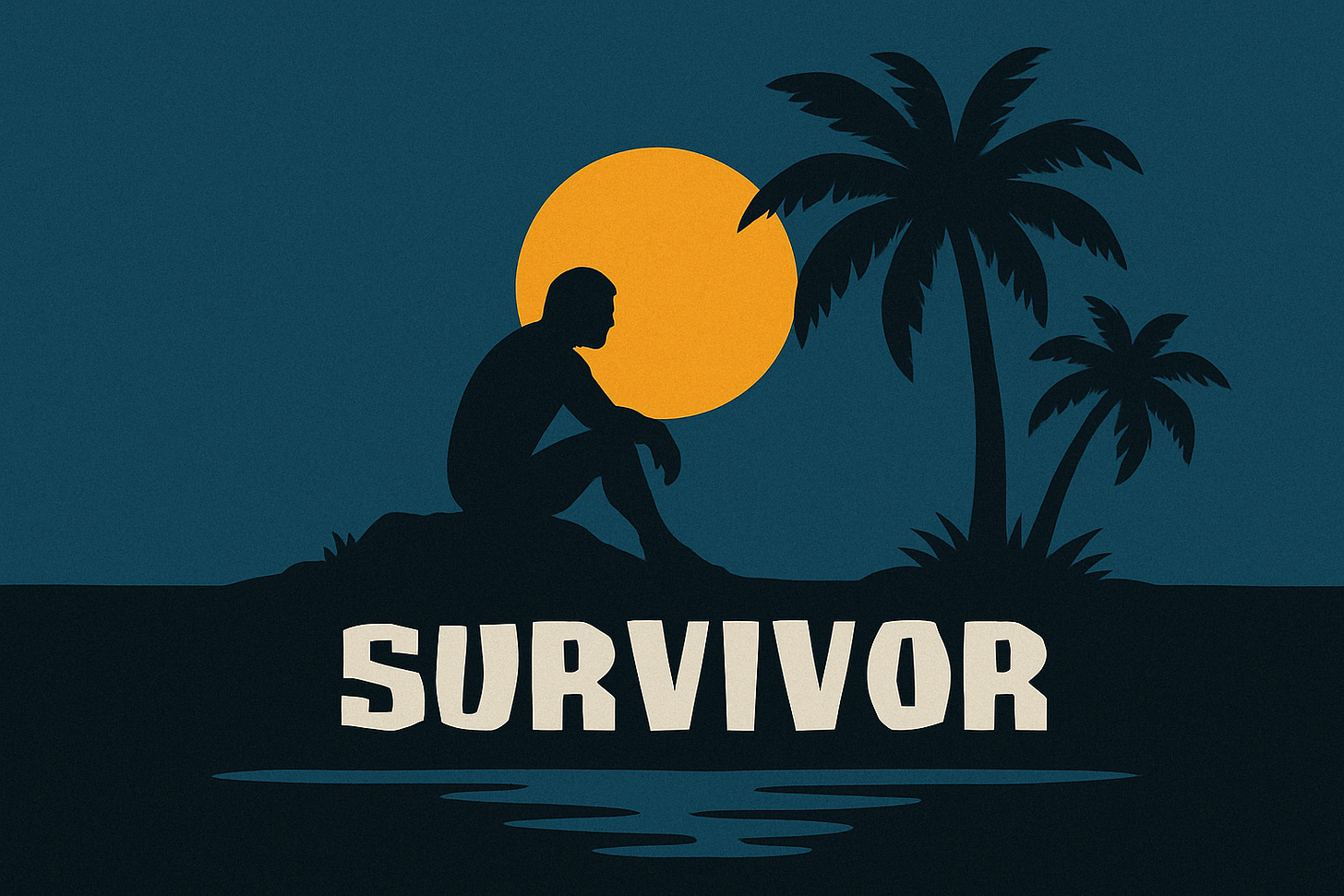Why Every Manager Should Watch Survivor
Leadership lessons learned from a reality TV show
If you want to understand power, trust, motivation, and the psychology of group dynamics—skip the MBA case studies for a night and watch Survivor. Seriously.
Yes, the long-running reality TV show with immunity idols and dramatic tribal councils might seem like an odd place to mine leadership insights. But if you look closer, Survivor is a masterclass in human behavior, team strategy, and adaptive leadership—served raw, real, and unfiltered. Every manager navigating shifting priorities, remote teams, and evolving cultures could stand to learn a thing or two from the island.
Trust Is Fragile—But Everything Starts With It
In Survivor, alliances are built on whispered conversations around the fire. And they’re broken just as fast. The game teaches you how delicate trust is when stakes are high—and how critical it is to performance.
For managers, this mirrors what happens when organizational priorities shift or when resources are scarce. Trust—between teams, across departments, or between manager and direct reports—is the fuel for resilience. If you don’t build it intentionally, it won’t be there when you need it.
I’ve learned this the hard way in distributed teams. As remote engineers navigated ambiguity, what anchored them wasn’t perfect clarity—it was belief in the person on the other end of the Slack thread. Trust, not process, is what holds things together.
Strategy Alone Isn’t Enough—Culture Will Decide the Outcome
Plenty of Survivor players have gone into the game with airtight strategies. Almost all of them get blindsided. Why? Because they underestimate the emotional landscape of the tribe.
This is true in organizations, too. You can roll out an ambitious product roadmap or restructure a department for efficiency, but if the team culture doesn’t support it—if people don’t feel heard, safe, or motivated—it will backfire. Every single time.
Changing a team’s micro-culture, especially in a remote setting, takes intentionality. It takes one-on-one conversations, visible values, small and consistent symbolic actions, and delegation as development. As I’ve learned, culture is not what you declare—it’s what your team lives day-to-day. Survivor forces you to witness what culture looks like under pressure, in real time.
Leadership Is Situational—And Vulnerability Wins More Than You Think
What makes a great leader in Survivor? It changes every season. Sometimes it’s the challenge beast. Other times, it’s the quiet social connector. Often, it’s the one who listens more than they speak. The best players adapt—not just to conditions, but to people.
I’ve come to realize the same in my role. My instincts may be to direct and drive, but my impact often comes from enabling others, stepping back, and creating space for the team to shine. The show illustrates this shift clearly: players who hoard power flame out. Those who empower others often win. Leadership isn't about being the hero—it’s about being the catalyst.
And yes, the most emotionally intelligent players—those who apologize, reflect, own their blindspots—go further. Vulnerability is not a weakness. It’s a trust accelerant.
Feedback Loops Are Everything
Every tribal council is a feedback session. Brutal, public, but revealing. What you learn—if you're paying attention—is not just who gets voted out, but why. Misreads, arrogance, passivity—it all gets exposed.
As a manager, the lesson is clear: you need feedback loops, even (especially) when they’re uncomfortable. Waiting for the biannual performance review isn’t enough. Regular 1:1s, anonymous team surveys, and self-reflection practices are how you avoid your own metaphorical blindside.
Survivor doesn’t give you the luxury of ignoring feedback. Neither should your leadership.
Resilience Is a Team Sport
Finally, Survivor teaches that no one makes it to the end alone. The players who thrive build ecosystems of support. They uplift others, hold boundaries, and keep showing up—day after exhausting day.
Leadership is lonely, yes—but it shouldn’t be isolating. I’ve found that when I model resilience—through clarity, calm, and care—I give my team permission to do the same. Resilience isn’t about pretending things are easy. It’s about facing difficulty together, with honesty and grit.
So yes, if you’re a manager looking to grow—not just in competence, but in character—binge a season of Survivor. Not for the drama, but for the dynamics. Watch how people lead when the stakes are real. Watch how failure happens. Watch what trust, influence, and adaptability actually look like—not in theory, but in practice.
Because leading an engineering team in today’s world? It’s not so different from surviving on an island.
Just, you know, with less sand.


